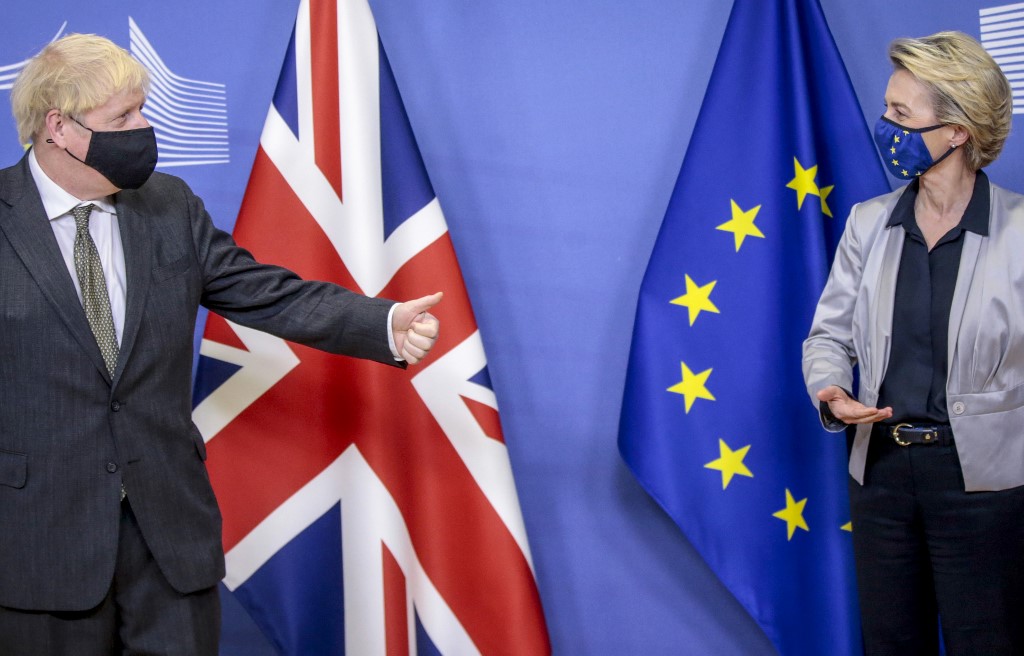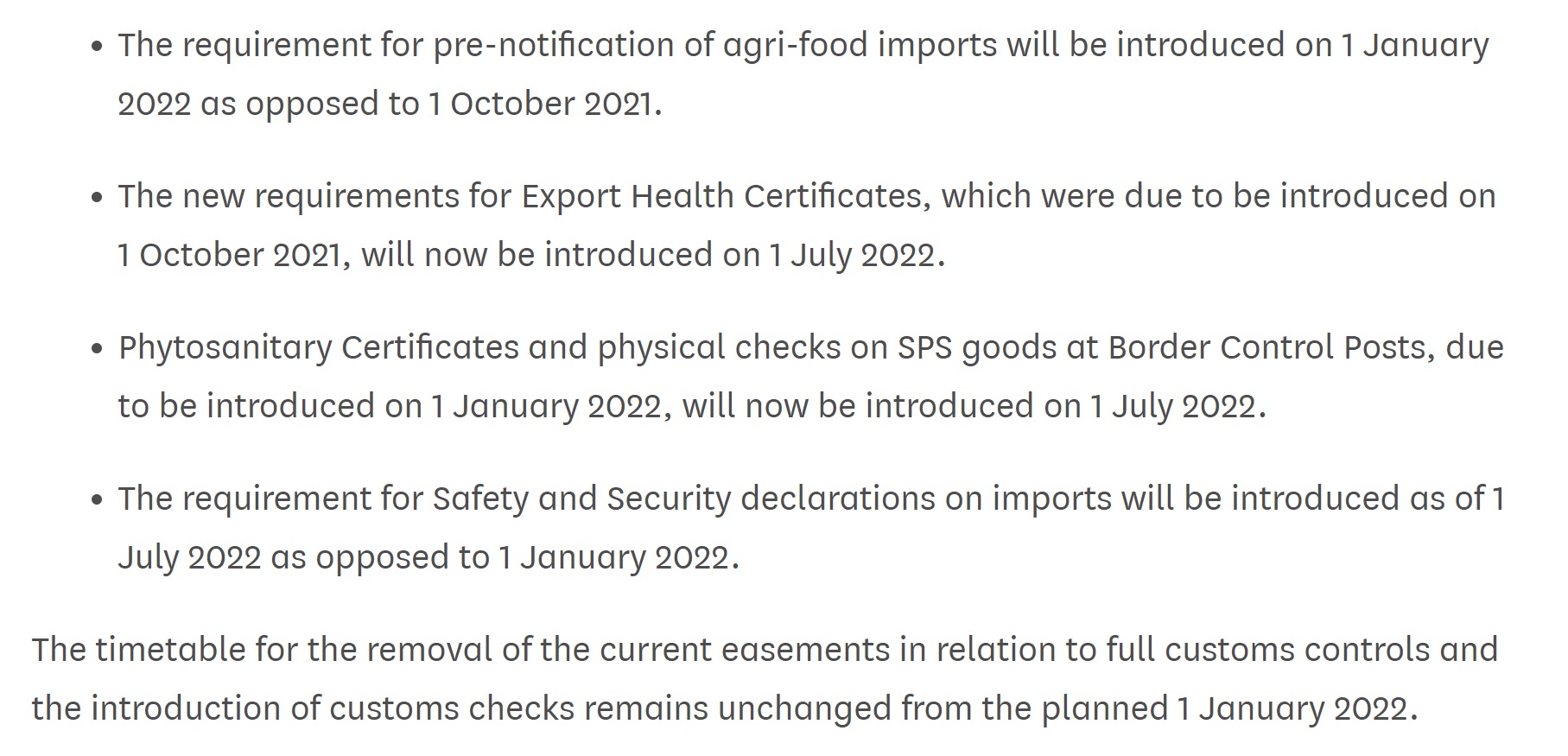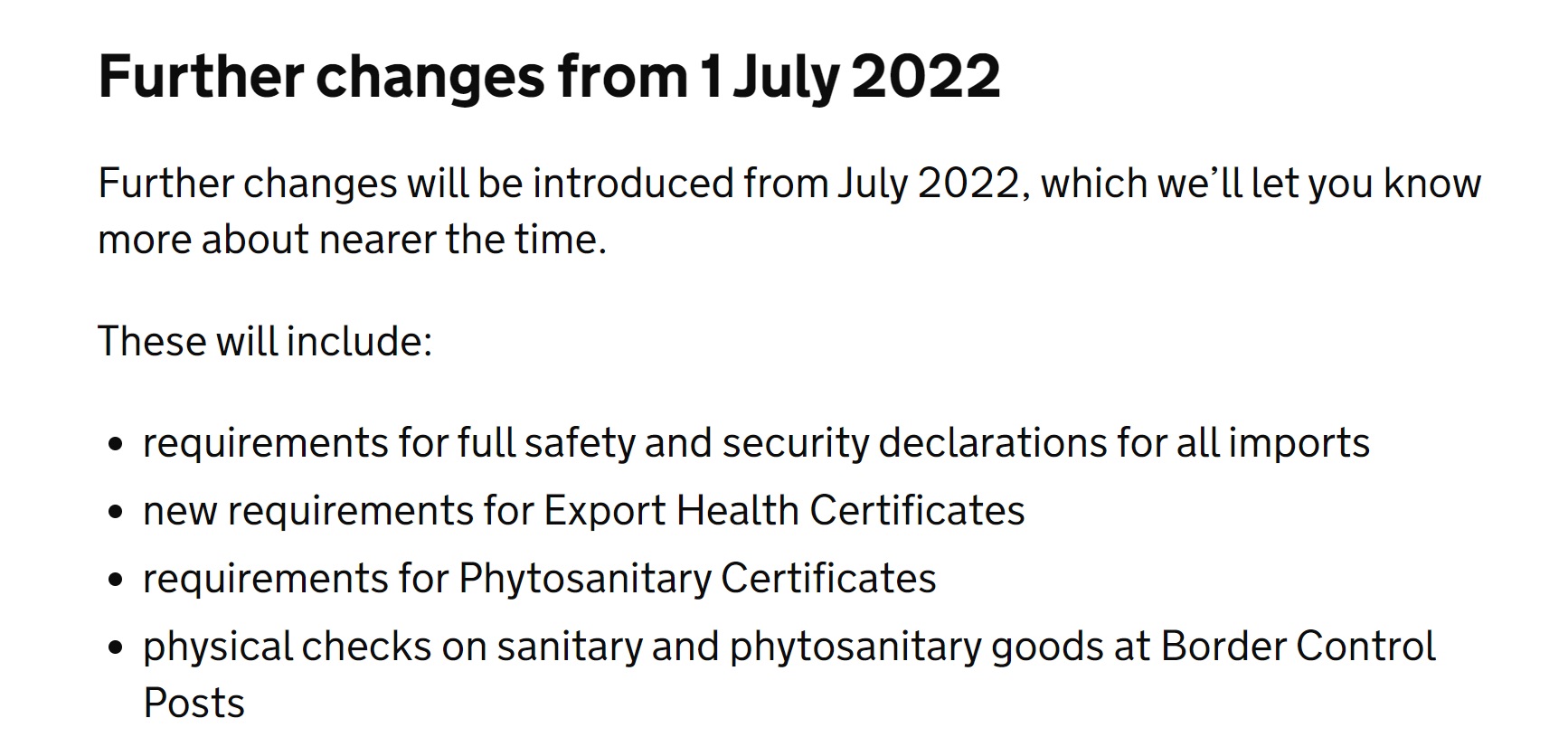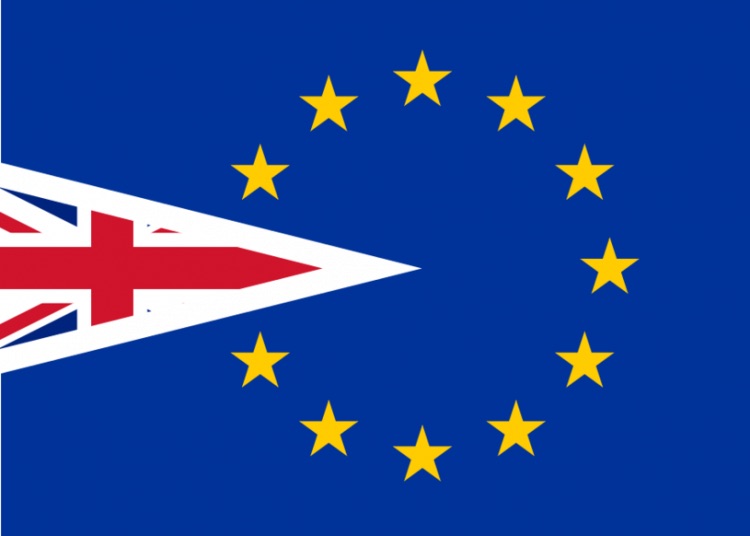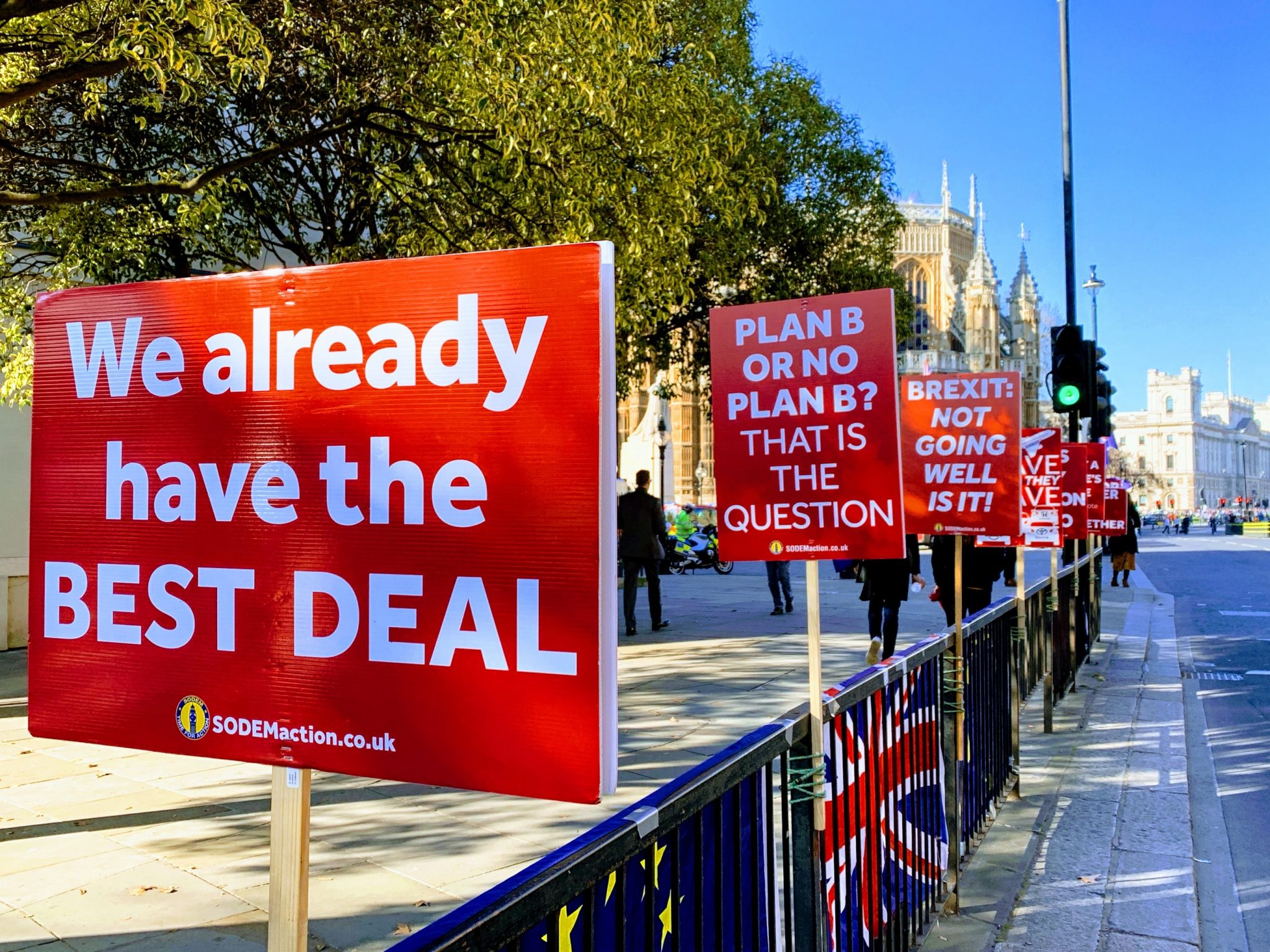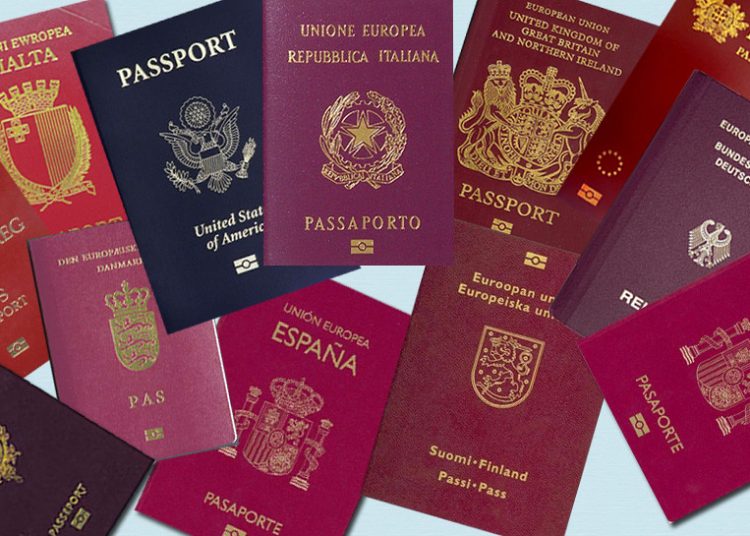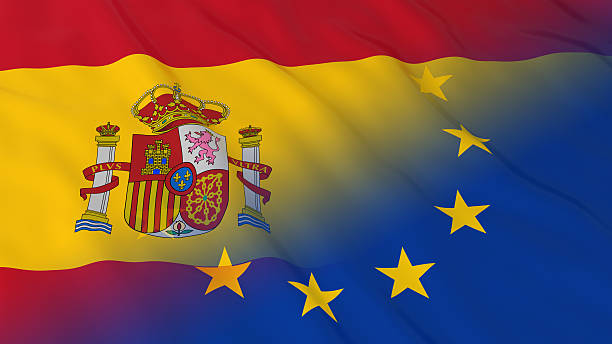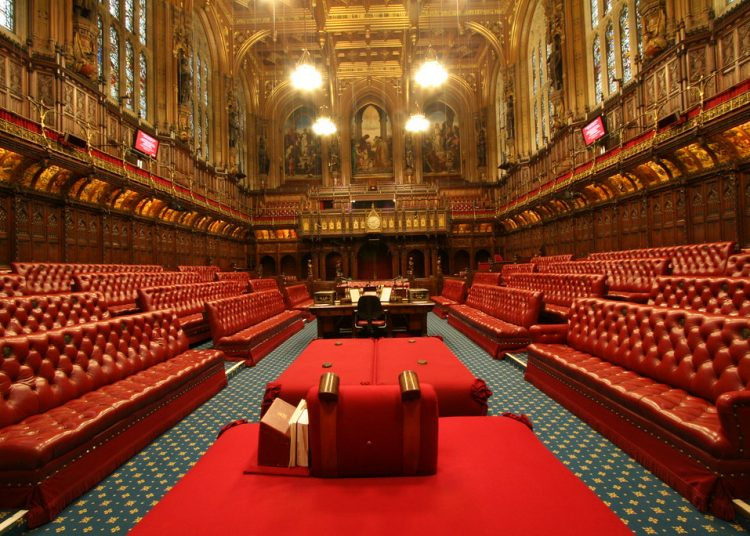
Lords debate Brexit impact on institutional framework and trade
The latest House of Lords ‘Beyond Brexit’ debate covered the institutional framework, trade in services and trade in goods, writes Bremain Chair Sue Wilson MBE for Yorkshire Bylines.
On 15 November, the House of Lords Grand Committee convened to debate reports produced by the, now defunct, European Union Committee (EUC) on the impacts of Brexit. The series of reports, entitled ‘Beyond Brexit’, were brought back to the Lords on 6 December for further debate.
The latest debate focused on three of the Beyond Brexit reports, covering:
- The institutional framework
- Trade in services
- Trade in goods
Read more here about the debate on 11 November, covering food, the environment, energy and health.
Former chair of the EUC, the Earl of Kinnoull, spoke of the 50+ years that various Lords committees had been analysing and reporting on all aspects of EU relations. Eleven months on from his committee’s production of the Beyond Brexit reports, he spoke of the relief that the ratification of the trade and co-operation agreement (TCA) had brought. However, he said it was now important to “take general stock of the position and how it matches up to the various words and aspirations of the TCA package”.
The post-Brexit institutional framework
The Earl of Kinnoull raised the issue of the lack of regulatory co-operation for financial services, and the failure to sign a memorandum of understanding (MoU). This failure meant that the EU had not assessed the UK for equivalence – a promise originally made in July. He also expressed concerns regarding the UK’s participation in EU programmes, such as Horizon, which currently excludes the UK’s “vast higher education and research community”. He asked that the government commit to providing the committee with a full picture of developments.
Lord Kerr of Kinloch spoke of the lack of structure for handling important discussions with the EU on common, global issues, such as the climate crisis, refugees and covid. Lord Frost had earlier told a committee that such structures would happen “naturally and organically”. Lord Kerr asked how many such meetings had taken place, or had been proposed, as he could not recall any.
“I think we need to overcome the temptation to celebrate difference and to recognise that splendid isolation is not always all that splendid.”
Lord Kerr of Kinloch
Lord Kerr spoke of earlier discussions regarding a ‘parliamentary partnership assembly’ consisting of members of parliament and of the European parliament. This proposal had been welcomed by Mr. Gove, but it appeared that hold-ups were coming from the UK side, despite the EU being “out on the pitch and warming up”. He asked the minister to explain the position of Jacob Rees-Mogg – was it “recumbent”, “laid back” or “supine”?
Trade in services
Baroness Donaghy emphasised the importance of economic services to the UK. In 2019, the UK exported £317bn of services to the EU and imported £217bn, and has consistently run a trade surplus. Donaghy described the UK services sector as “a major success” story, as well as iterating the importance of the creative industries. She added that the government had only succeeded in “minor acts of mitigation”.
The Baroness expressed concern regarding the creative industries, which she described as “hugely important and influential”, being worth £100m in 2019. Lord Hannay of Chiswick added that discussions with the government regarding the creative arts felt “more like a dialogue of the deaf than a constructive and concerned response to the dire situation into which one of the most vibrant and profitable sources of our invisible exports has been cast following Brexit”.
Baroness Donaghy, Lord Hannay of Chiswick and Baroness Bennett of Manor Castle all spoke of the damage caused by the loss of the Erasmus scheme and in the inadequate substitution of the Turing scheme.
Trade in goods
Chair of the sub-committee on the protocol, Lord Jay of Ewelme, spoke of his concern regarding the provision of medicines in Northern Ireland, and the impact on the vulnerable. He also raised the issue of threats to trigger article 16, and the lack of parliamentary scrutiny.
Shortages of labour and drivers was raised by Baroness Armstrong of Hill Top, who also mentioned the “poor quality of facilities for those moving goods”. She said she was “severely embarrassed” to hear of the conditions facing drivers stuck on motorways or in car parks who were “unable properly to use services to look after themselves, let alone the goods they are seeking to move”.
Lord Hannay of Chiswick raised the issue of sanitary and phytosanitary (SPS) controls, and questioned why the government were not looking for an SPS accord. He said that even though this had been considered during the pre-Brexit negotiations, that did not mean it should not be revisited.
Baroness Bennett of Manor Castle said she came to this debate from a different position from other noble Lords, because she does not go “Yay – trade! More trade!” She said her interest was in “the well-being of the people of the UK and of the planet”, and the well-being of the planet itself. She expressed concern that the government often seemed to push for free trade agreements with other parts of the world “at great cost to the environment and to existing businesses”
Lord Desai begged the government to consider taking “care of our citizens, trade and economy which are suffering”. He suggested his noble colleagues “read the report from the Office for Budget Responsibility which talks about ‘scarring’ due to Brexit. It is costing us 4 percent to 5 percent of GDP. This is a serious matter, and the government ought to let go of their pride and get some business done”.
Relations with the EU
Baroness Armstrong of Hill Top spoke of the importance of developing good working relations with the EU, and said we would be far more successful in our negotiations if only we “act as grown-ups, treating others with respect and as we would wish to be treated ourselves, while keeping our word and acting with integrity”. She described the view that this approach would be seen as “rolling over” as “absolute nonsense”, reflecting “old-time male attitudes”:
“Let us grow up and treat our partners as real partners who are able to contribute to the development and success of our country as well. We can contribute to countries across Europe being successful and they can contribute to our success. If we think that in today’s world, we can do it all without them or that sort of relationship, then we are living in cloud-cuckoo-land. The people of this country have the right to demand that we deal honestly and fairly with them, which also means dealing with the EU in that manner.”
Baroness Armstrong
Criticism of the government approach was also made by Lord Hannay of Chiswick, who spoke of the need for rebuilding the trust with the EU, that had been “so undermined in recent times”. He said liberal democracies needed to “work together, not pull apart”. Former MEP, Lord Inglewood, described “the bed we have made” and which “we are all now lying in” as a “hard Brexit with a deal”.
Lord Kerr asked who was responsible for bilateral relations with our 27 EU neighbours – was it the foreign secretary or Lord Frost? And if it was Lord Frost’s responsibility, Lord Kerr added, “can he and does he draw directly on [Foreign and Commonwealth Office] expertise?” Lord Kerr went on to cite the “unfortunate letter” to President Macron that “could have been better drafted had an expert eye looked at it”.
Government rhetoric, “that discourages co-operation”, was again raised by Lord Thomas of Cwmgiedd. He said, “The only way we will succeed in competition is by friendly co-operation, with a keen eye on our long-term goals. This is a long game, and we must not lose it by rhetoric that does not foster co-operation”.
Lord Desai described the current situation as a “car crash that is causing enormous damage” and likened discussions between the UK and the EU to a divorced man not caring about the children, and who thinks he is free to walk away without talking about the necessary future arrangements. He said it was symptomatic of the approach taken by the “winning section in the Conservative Party”, who were so hostile to Europe. They said they would conduct “free trade agreements with 100 countries in no time whatsoever”, he added, “as if they had not held a responsible job in their lives”.
Lord Frost missing in action
Lord Kerr of Kinlochard referred to the fact that Lord Frost was unavailable to attend the debate and speak on behalf of the government. Frost’s place was taken by Lord True, whom Kerr described as “a genial, subtle debater, and not at all frosty”.
Baroness Chapman of Darlington, speaking of Lord Frost’s absence, said, “he has taken to making statements on the last day of term, or when the Commons is not sitting, and issuing Written Statements rather than Oral Statements. I hope that will not become a habit”.
Government response
Lord True began his half-hour response by stating that it had never been the government’s intention “to be triumphalist, aggressive or divisive on these questions”. He said the government saw the EU as “a close friend and partner” and wished for “nothing other than good relations”. He described parliamentary scrutiny as “invaluable and essential”. He said the ratification of the TCA had been a “landmark moment” which fulfilled the promise to “take back control of our laws, borders, money, trade and fisheries”.
In regard to SPS checks, the EU were deemed to be at fault in failing to agree to proposed equivalence commitments – a decision described by Lord True as “surprising”. He also complained of an EU failure to grant the UK “full listed status” regarding, for example, the movements of molluscs or pets.
On the finance sector, Lord True welcomed the European Commission’s extension of an equivalence decisions re clearing houses. On the MoU, he said that technical discussions had concluded and that the MoU could be signed once formal EU procedures are concluded.
The government is committed to being “a science and research superpower”, and are awaiting the EU’s formalisation of UK participation in collaborative international programmes. The priority, said Lord True, must be in “supporting the UK’s scientists and researchers”. The decision regarding the Erasmus programme was to pursue a global exchange programme rather than contribute “a large net contribution” to Erasmus.
On the creative arts, again the blame was levelled at the EU for failing to adopt a UK proposal, which had been accepted by Norway and Iceland. Lord True stated that it is not government policy to negotiate a visa waiver. Lord Hannay responded by saying the minister had replied, “exactly as I predicted”. The government had again failed, he said, to propose any solution to limit the damage. Lord True’s rejoinder was merely to say he had set the record straight, drawn attention to “progress that has been made” and had reasserted “the government’s concern for the well-being of these industries”.
In response to Lord Kerr’s questions about responsibilities for ongoing bilateral discussions, Lord True said that Lord Frost, who “works hand in glove with the Foreign Office”, was the person responsible for those discussions. It is unlikely that Lord Kerr will have felt reassured.
Lord True described the gap between the UK and EU positions as “significant” and said progress had been “limited”. The government maintains that, “the threshold has been met to use the article 16 safeguards to protect the Belfast/Good Friday agreement if solutions cannot be found”.
In summation, the Earl of Kinnoull concluded by referring again to the state of relations between the UK and the EU. He regretted that we “have fallen out with” our neighbours and friends and spoke of the need to “rebuild trust and respect”.
Lord Frost may have had somewhere more important or interesting to be, but Lord True, “true diplomat” or not, certainly towed the party line, even if with rather more decorum. Whether any of the noble lords and ladies present will feel as though they received any straight answers, or feel any the wiser, is highly unlikely.
Read the full transcript from Hansard of the House of Lords Grand Committee debate on 6/12/21 here

